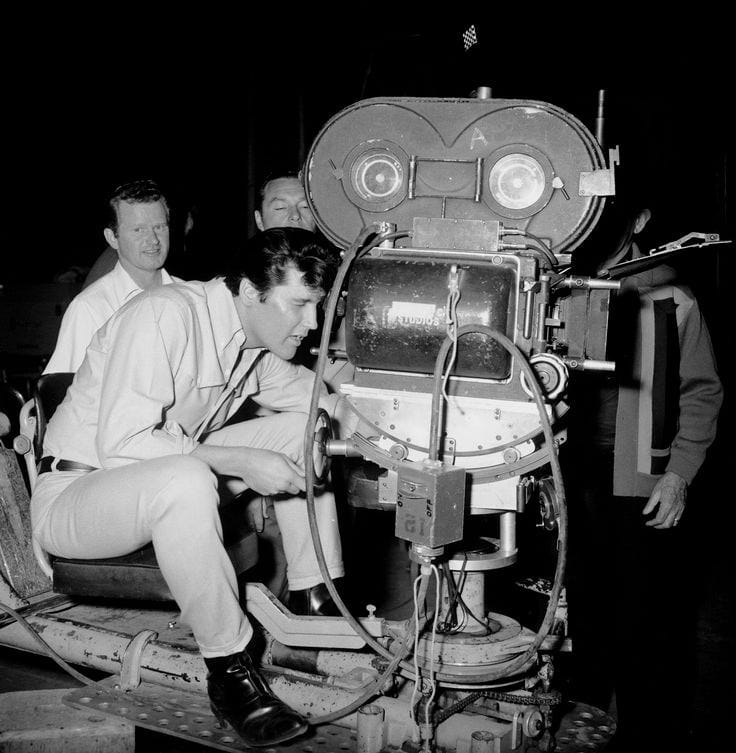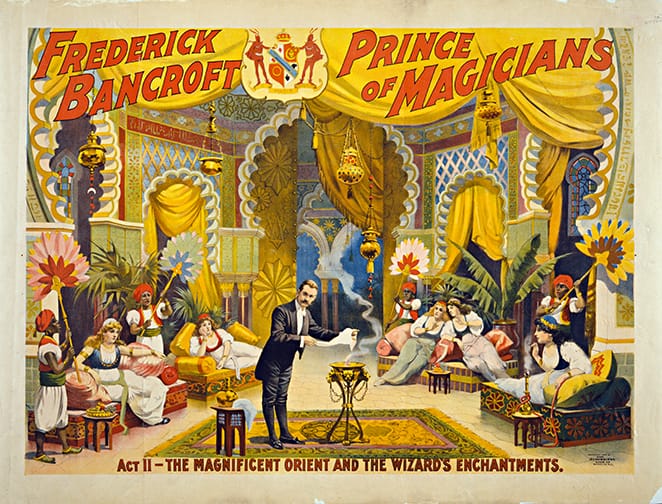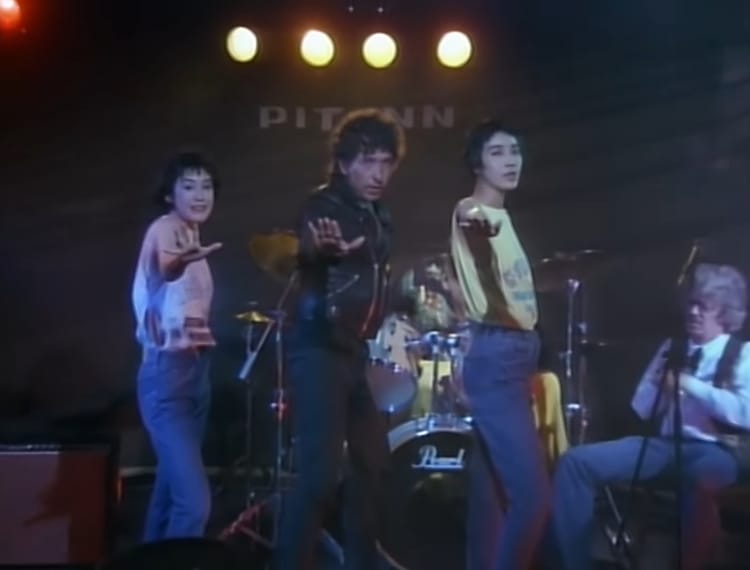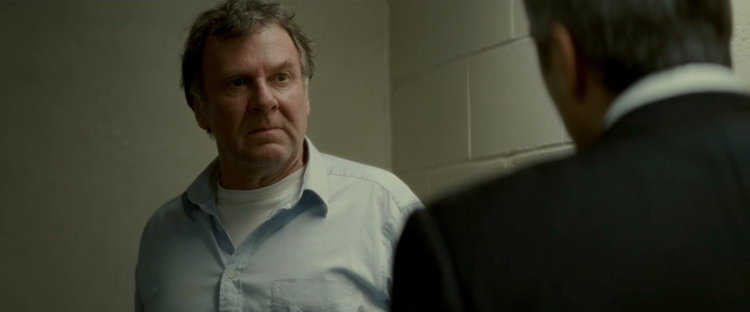The Dream Elvis Biopic Survey

As anyone subscribed to this newsletter is likely aware, I spent the second half of 2022 gripped by Elvis fever. I’m about ready to turn towards new fascinations in 2023, but first, I decided to throw a little New Year’s party—I invited friends, colleagues, and Twitter to pitch me their dream Elvis biopics, and the results proved exactly what I imagined: any director could conceivably make an Elvis movie. He’s the ideal canvas.
And so, without further ado, I present: The Dream Elvis Biopic Survey
Cory Everett (creator of Cinephile card game and the Li’l Cinephile books)
This is not a biopic per se but it is a dream project, one I’ve thought about ever since I visited Graceland a few years ago and started watching a ton of Elvis movies with my son.
We all know that Elvis made so many movies. So. Many. Movies. (Apparently thirty-one of them!) Most of them musicals. We also know that he also recorded an all-timer Christmas album.
So how on Earth did he never make a Christmas movie musical???
He had so many great Christmas songs that could have stitched together a paper thin plot about being the Christmas-loving bandleader of a house band at a resort in some tropical locale. Imagine the opening scene is Elvis and his band doing a scorching version of “Santa Claus Is Back In Town,” wearing green and white velvet suits, flanked with technicolor red curtains, and a gentle snowfall out the window. The entire number is done in a single take as the camera tracks back from a closeup to reveal the entire bar of patrons dressed in Hawaiian shirts and vacation gear (the gentle snowfall was just soap flakes). Elvis eventually meets a girl who doesn’t have the Christmas spirit, a romance ensues as he tries to bring her some holiday cheer. If you’ve seen enough Elvis movies, the rest practically writes itself.
Unfortunately he never made that movie. So here’s my pitch:
Blue Christmas directed by Todd Haynes starring Austin Butler as Elvis.
And you do it as exactly the film that Elvis would have made in 1962.
Get you an Elvis who can do both: the incredible ’68 comeback special and a Christmas movie that can live on in perennial rewatchability.
B.C. Wallin (writer, etc.)
My shambling version of Orson Welles’ Elvis:
Memphis is a lost Eden, even when Graceland is built. Elvis is home, but his home isn’t what it was. He’s large, even when he’s small. He has a force that can overtake a frame, and it dwarfs those in his orbit. Welles chooses not to play Presley, but he certainly considered it. Jo Cotten considered it, too, but the part was always going to Elvis himself. The man can’t act, but Welles doesn’t need him to be an actor. He’ll find it in the edit. The film isn’t about the greatness of man, per se; it’s more an examination of the un-greatness you feel facing your own purported greatness. Elvis didn’t know he’d die tragically, but Welles did. Not an inch of celluloid was ever exposed in the state of Tennessee.
Paul Brad Logan (co-writer of Halloween Ends and author of the novelization)
I have two takes.
Bob Fosse (a man who knows his way around a biopic) directs John Travolta in the 1984 film Graceland. At the end of his life, and in a drug-fueled lost weekend, Elvis Presley attempts to recreate his entire life (even going so far as to build a Graceland inside his own Graceland). It all leads to a spectacular "Live from Graceland" finale concert. There will be sweat. And cigarettes. And big bright lights. Peter Boyle is Elvis' driver, whom Elvis casts to play Tom Parker in the recreation of his life. Mariel Hemingway is his lovely wife Priscilla. And Eric Roberts dazzles as Carl Perkins. It's showtime.
Or...
The 1978 Robert Altman movie "America the Beautiful" takes place at one of Elvis' final concerts in Evansville, Indiana. Even though Elvis is never seen during this film, he haunts each scene with his mythic stature. We learn the facts and fictions of his life story through the people surrounding the show: the venue's employees, Elvis' production staff, the press, the fans, the local shopkeepers hoping to capitalize on the big show, and Colonel Tom Parker who searches the town with a mysterious figure, looking for a secret underground casino. "America the Beautiful" stars Diane Ladd, Burt Reynolds, Elliot Gould, Quincy Jones, Terri Garr, Paul Le Mat, Jodie Foster, Pam Grier, Shelley Duvall, Goldie Hawn, Andy Griffith, Gloria Swanson, and Paul Dooley as Tom Parker.
Sarah Welch-Larson (co-host, Seeing and Believing podcast; staff writer, Bright Wall/Dark Room)
Biopics that cover a small slice of a character’s life are much more interesting to me than biopics that try to sum up the entire person, so here’s my pitch: Elvis, the Army years in Germany, directed by Steven Soderbergh. Show the homesickness and the home recordings he made—the not-glamorous stuff. (My one hesitation about making a movie about this period is his meeting Priscilla; she was way too young and the filmmaking would have to be frank but sensitive, and oy, I don’t know…)
Adam Volerich (co-host, Eye of the Duck podcast)
Whenever I hear there’s gonna be a biopic about X person I pretty much always hope it’ll come from a sincerely maximalist director with stylish visual trademarks and recurring collaborators. But that’s basically what we got with Baz!
So I am going to take a wild left turn and say I want the weirdo, mumbly, gross-out version of the Elvis story directed by Joel Potrykus and starring his muse, Joshua Burge.
The entire film will take place pre- or post-performance in hotel rooms, tour buses, and other liminal interstitial spaces where Elvis can be in a more or less constant state of relative distress, drugged out psychosis, or joyously absurd mania.
Production will not be able to license any of Elvis’ music; we will never hear him play a single song, and the only time we’ll see Elvis perform at all will be in the reflection of his sunglasses while he watches himself on television on mute as an evil droning score thumps in our ears.
And we will absolutely see him die on the toilet. It will be equal parts hilarious and disturbing and audiences will not know whether they should laugh, cry, vomit, or all of the above.
The entire budget for the film will be $666 as all the equipment, costumes, and props will either be borrowed from friends or bought and returned to Amazon.com moments after production wraps.
Every set will be a redress of Potrykus’ own windowless basement. And he will wear multiple hats, serving as the whole production crew—except for one day when he brings in a drone operator to fly around Burge’s Elvis and crash into him repeatedly; a physical representation of the unwelcome intrusive thoughts that buzz around the king’s head like house flies in brief moments of sobriety.
It will premiere on Kanopy and limited release Blu-Ray from Vinegar Syndrome, and it will be my favorite movie ever made.
Jillian Sauers (friend of the newsletter)
Lorene Scafaria. She treats interpersonal dynamics so well and would nail the sensuality of concert performances. And I can see "Are You Lonesome Tonight" being deployed with devastating results in a tasteful depiction of his death.
Calvin McMillin (author, The Sushi Bar at the Edge of Forever)
Clint Eastwood helms the Elvis Presley biopic It’s Now Or Never, focusing on the creation of the ‘68 Comeback Special. Born five years before Elvis and possessing a firsthand knowledge of the time period, Eastwood offers a unique perspective on the life and times of the King of Rock ‘n Roll. Picking up on themes previously explored in Gran Torino, The Mule, and Cry Macho, Eastwood focuses on Elvis’s feelings of obsolescence in the face of a changing cultural landscape—and his ultimate triumph over the naysayers. Eastwood’s son Scott steps into Elvis’ hallowed blue suede shoes, while the elder Eastwood appears in the frame story as an eighty-seven-year old musician with firsthand knowledge of the Comeback Special—and an unbelievable secret of his own. Brought in under budget using only first takes, It’s Now or Never is the story of an American icon directed by an American icon.
C.M. Crockford (Vague Chasm, Paste Magazine, No Cinema! Quarterly, In The Mood Magazine)
This is a nice reminder to see more dumb/fun Elvis movies beyond Jailhouse Rock. Not sure he would've been Olivier, but a few auteurs could have really tapped into his charisma and moodiness. Those '54 tour photographs alone are staggeringly beautiful and capture his innate cinematic quality.
Michael Powell - Elvis Presley in marvelous Technicolor™!!!
For the first time, we see it all from the King's eyes: the camera rotating between Elvis' vision of his adoring audiences–taking him captive with their eyes and screams–and the sight of Elvis live, both in thrall and enthralling, unable to break their hold on him until his dying breath. This biopic would make Priscilla a sympathetic figure, unable to stop Elvis' decline but desperate to help him. Yet Elvis, this easily seduced, passive figure, becomes corrupted by the disturbing yet codependent presence of Colonel Parker, as well as his own fame and greatness. His original innocence is now only present in fits and gasps, surging back to him in moments of pink and purple drug-addled clarity before the woozy, ecstatic death scene. Are we, the paying movie audience, another viewer? Perhaps as complicit as anyone else involved with this tragedy–as anyone who howled out his name?
Terence Davies - Blue Moon
Half is a black and white meditation on Elvis' stillborn twin Jesse, and the survivor's guilt and loneliness he felt from this loss, steeped in fear of God and the loss of Mama. The other half is a stunning recreation of 1950s America, complete with period accurate lighting, indebted in part to the lush, high contrast 1954 photographs of young Elvis taken by Alfred Wertheimer. Davies features stunning recreations of gospel, blues and R&B singers, albeit with only a quarter of Lurhmann's budget. But this film is steeped in intimacy and foley work. The singing is truly communal, a gathering–one Elvis could interpret, but not truly capture. The film is quietly critical of how the American capitalist economy favors white musicians over Black ones. It also doesn't shy away from the blunt reality that Priscilla was 14 when she met Elvis (this results in the disapproval of Blue Moon by the Presley estate). Yet Davies clearly believes the man to be a genius. He also feels compassion for the poverty the Presley family lived with, and the success they surely felt was a dream come true. Blue Moon will be wildly critically acclaimed and make $900,000 in American theaters.
Danny Leiner - Where The Hell Is Elvis?
The director of Harold and Kumar Go To White Castle and Dude, Where's My Car? just films the Million Dollar Quartet jamming, getting high and drunk, and recording some bootlegs. The film's photography is a bit flat, but Leiner knows how to time a joke. And, possibly by simply recording a bunch of stoned idiots joking, jamming on music, and hanging out, Leiner accidentally captures what it was actually like to hang out with the likes of Jerry Lee Lewis and Elvis Presley better than any other motion picture.
Kathryn Bigelow - Rock n' Roll.
You've never seen Elvis look so beautiful, not even in his own movies. In tender close-up, Bigelow pays attention to the eyes, the lips, Elvis's graceful, feline physicality as a performer–the female gaze is front and center. What better way to consider this accidental walking transgression who challenged how men dressed and how they were supposed to behave, even while he kept to his macho, conservative attitudes? Bigelow adores Elvis's contradictions, molds and shapes them for an image of poetic masculinity, close to destruction through his mere existence, his individual mode of being, akin to a Greek hero. The film is criticized for not quite knowing how to approach Elvis' relationship to Black music and culture. However, the freeze frame at the end on Priscilla as she learns he's dead, and recognizes him as a Legend now, a new American Myth, no longer her love, is considered perfect.
Ashley Naftule (playwright & culture writer)
DIRECTOR: Abel Ferrera
PREMISE: The Ferrera Elvis film would take place entirely during the twilight of his career—his purgatory in Las Vegas. We go through a Christmas Carol-style narrative in which the King is visited by the ghosts of his past as he prepares for his latest residency. But whereas Ebenezer comes out at the end of that night a changed man, Elvis is unchanged by this spectral experience.
Danny Cohen (the recording artist Mr. Emotion)
David Cronenberg directs, collaborates with Don DeLillo on the screenplay. White Noise-style cultural insights, Cosmopolis-style alienation, Dead Ringers-style feeling of inevitable doom. Have Elvis constantly talk about his own place in culture in a detached deadpan, like he’s both entertained and saddened by it. Include his abusive behavior. Frame his death like the logical conclusion of his life and worldview, almost like he chose to go out that way to make some perverse statement.
Sydney Urbanek (writer, Mononym Mythology; editor, Bright Wall/Dark Room)
I’m legally obligated (just kidding… unless?) to say Jonas Åkerlund, who’d make the most off-the-wall Elvis biopic I can think of. He actually named his first child Love Elvis, and sometimes sneaks Elvis things into non-Elvis projects, so I think he'd be interested.
The music connection is obvious, but there’s also Åkerlund being very good on fame and excess and media surveillance—especially when he can ground those things in Americana, and when there’s some element of self-destruction at work. He’s already done quite a bit of biopic-style narrative stuff, but I might actually be more interested to see what he’d do if you (figuratively) locked him in the editing room with a bunch of boxes of archival footage. Roxette did this several years ago and Åkerlund came back with a whole documentary feature, and he also managed to squeeze ABBA’s whole ascent and peak into four and a half minutes. Just something for the Estate to consider.
Cassidy Olsen (writer and filmmaker)
Who better to write and direct a film about a preternaturally talented, deeply odd and eventually drug-addled figure of pure Americana than Harmony Korine?
Baz Luhrmann, maybe. But I would pay top dollar to see Korine’s version. He might lean into the ‘60s Hollywood Elvis, bouncing from one cheery flop to the next surrounded by his sycophants, but I predict his interest lies in late-in-life touring Elvis. Divorced, bloated, chock full of pills and giving it his all anyway, the end is near for Presley, and he might even know it—but with Korine, that knowledge opens the King up to a sort of devil-may-care emotional freedom we haven’t seen from him before. What hijinks will get up to?
The sunsets of Hawaii and buzzing neon signs of middle America are at cinematographer Benoît Debie's disposal here. Korine doesn’t seem like he has much patience for musical theater, so maybe this one doesn’t have any big songs. But you better believe Riley Keough is showing up as Priscilla. Hell, you could even get Hanks back to do The Colonel again.
It will make $5 at the box office.
Ethan Warren (the usual writer of this newsletter)
As someone who will soon be publishing a book on Paul Thomas Anderson, I naturally had to choose him here. But what could that mean? Well, let’s think on it, why don’t we? This is the last one, nothing else to see here if you don’t care about Paul Thomas Anderson’s Elvis.
But I do.
To begin with casting, I should hope this much is clear: Joaquin Phoenix as the king, and Philip Seymour Hoffman as “Colonel” Tom Parker. In fact, why don’t we posit this as Anderson’s follow-up to There Will Be Blood. It now takes the place of The Master in his career.
Much like Sarah Welch-Larson, I prefer biopics that focus on one segment of a celebrity’s life (Baz Luhrmann’s Elvis being a clear exception). So why don’t we posit Anderson’s film as focused exclusively on the 1968 “comeback special” (aka Singer Presents: Elvis)? Conveniently, I consider this to be the only portion of Luhrmann’s film that absolutely flops. (Surely Baz can’t expect us to believe the Colonel was actually hustling around in a gaudy sweater, shrieking over the shoulder of Binder and Bones while they coached Elvis through the highjacking of a clearly well-considered television production!)
By virtue of debuting in 2012, this would be Anderson’s sixth film—which, I have just decided, will be titled A Motherless Child—and the last of what I consider a three-film cycle (preceded by Punch-Drunk Love and There Will Be Blood) of repressed, addled films concerning protagonists struggling with their rage.
Thus, the king we see here would be a man constantly at war with his own impulses. His addiction to amphetamines—steadily worsening since his army days—leaves him in a state of wired exhaustion; his urge to keep nocturnal hours with his “Memphis mafia” clashes with his instinct to nurture his new daughter; he wants things to be the way they were (the thrill of new fame; his mother there to see it) and he wants things to change (he needs to catch up with a pop culture increasingly driven by a counterculture he can scarcely understand, or else risk ultimate obsolescence). He withdraws into himself, only emerging when he lashes out at everyone except the one man he should be rejecting: a jovially menacing Colonel.
This portion of the king’s career (and why don’t we, just for the sake of fantasy, say that Anderson elides Elvis’ name, referring to him simply as “the king” throughout, perhaps “EP” when absolutely necessary) handily matches one of Anderson’s abiding interests: epoch shifts. Many of Anderson’s films either straddle some era-defining shift (the hedonism of the ‘70s gives way to the despair of the ‘80s in Boogie Nights; World War I is entirely elided in There WIll Be Blood, but clearly present as subtext in the final time-jump) or else fall on the far side of one (World War II in The Master; the so-called “death of the ‘60s” in Inherent Vice).
1968 provides nothing but opportunities for this sort of eerie swing from optimism to despair—there are the assassinations, of course, but Anderson isn’t as crass as Luhrmann. Rather than moments of consensus significance, he focuses on the peripheral stories of June 1968, inflating and conflating them when necessary. Rather than Robert Kennedy, the shooting given attention is Andy Warhol’s—even more horrifying to EP than RFK’s. Rather than the Paris student uprising, we glimpse the Yugoslavian one. The Puerta 12 tragedy is lingered upon. It’s a morass of vague pain we can’t quite attach to the convenient narratives of history; all we know is that, on some cellular level, the world is not all right.
This would be another of Anderson’s (to use my own term, elaborated upon in the book Paul Thomas Anderson: American Apocrypha–available for pre-order now wherever you get your books!) apocryphal histories. Does the truth of 1968 matter? Of course not—this is an Andersonian 1968, one teeming with the grotesque (network executives prowl menacingly, while what few Elvis fanatics remain are now as sad and deluded as the man himself) and the ecstatic (ethereally pure Priscilla—played by a Swedish unknown named Alicia Vikander; Anderson saw Till det som är vackert (2010) and couldn’t get her out of his head—and Lisa Marie; cherubic army buddy Charlie Hodge (Paul Dano) and stalwart new ally Jerry Schilling (Leonardo DiCaprio, finally teaming up with PTA after missing out on being Dirk Diggler), both of whom Elvis already feels he owes debts he can never repay, fueling a cycle of guilt on which the Colonel feeds).
Naturally, given Anderson’s consistent interest in show business and salesmanship, the officious network head—an invented character to be played by…let’s say John Goodman, why not, he’d be great in a PTA movie—is ever ready to strike back against any attempts at genuine artistry, leaving Andersonian stand-ins Binder and Bones (Luke and Owen Wilson—Luke was cast first, but it’s Owen who caught Paul’s eye, and he already likes him for a supporting role in his next project) desperate and flailing. Like later Anderson alter ego Reynolds Woodcock, they despair at their efforts to mix the artistic with the commercial (a subject close to Anderson’s heart after his “Scientology movie” failed to find financing—in this timeline, Annapurna is a brand of high-end organic cereal). Imagine the soundstage scenes from Magnolia but with a new control to their frenzy, an Anderson driven mad not by cocaine and fame but by artistic desperation, all aided and abetted by Jonny Greenwood’s screeching and drawling electric guitar score.
As it takes the place of The Master, Anderson’s new sixth film does need to hit a few hallmarks just to move him along to Inherent Vice (which will now look like an ideal pairing, a duology standing astride 1969) and continue his career unabated Thus, like The Master, A Motherless Child is soundtracked by a bed of female voices (which George Toles considers essential to The Master’s effects), both serving as a contrast to the king’s seething masculinity, and offering an implicit maternal lap to which he longs to return. The songs of Elvis’s childhood (Peggy Lee, The Andrews Sisters) serve as a motif, Priscilla singing to soothe both her own new child and her dazed husband; meanwhile the soundtrack bursts with the era’s most powerful female pipes (as ever, caring more about effect than accuracy, Anderson strays into the future, culling tracks from Janis Joplin’s 1969 debut, I Got Dem Ol' Kozmic Blues Again Mama!, and—because how could he not?—from Minni Riperton’s 1970 LP Come to My Garden).
As for the film’s events—like with The Master, we jump through time and space via a woozy diegesis pockmarked by ellipsis. We drift from Elvis’s explosive rage over the notion of a Christmas Special to his foggy planning sessions with director Steve Binder to the hallucinatory taping scenes (remember the part in The Master where Freddie imagines every woman around him is nude? You think Anderson would let this new sixth film pass him by without something analogous and I shall say no more?). And all the while, the audience comes to recognize—tragically ahead of the king himself—just how much the Colonel feeds on his neuroses and insecurities.
Because, like so many of Anderson’s films, A Motherless Child does ultimately center on a male diptych, two sides of the same coin—the Colonel older and wiser, the king younger and more naive; the Colonel bloviating and vast, the king repressed and wiry. The Colonel consumes a room while the king looks for a place to hide.
Given Anderson’s preference for what Cory Everett (in his superlative book A is for Auteur) calls “happy-sad finales” we certainly won’t go out on a note of either triumph (“If I Can Dream”) or sorrow (a foreshadowing of Vegas). Rather, the king simply returns home, and falls asleep. It’s a rarity for him. But today, he earned it.
A Motherless Child premieres in competition at TIFF, where it wins the audience award, leading to immediate Oscar-frontrunner status but triggering simultaneous waves of pre-release controversy. Reviews are generally ecstatic, and the film is nominated for eight Oscars, including three for Anderson. By Oscar night, though, discourse fatigue has thoroughly set in, and the film only takes home Best Costume Design. Within a year, consensus has generally settled on A Motherless Child landing in the bottom half of Anderson’s filmography.




